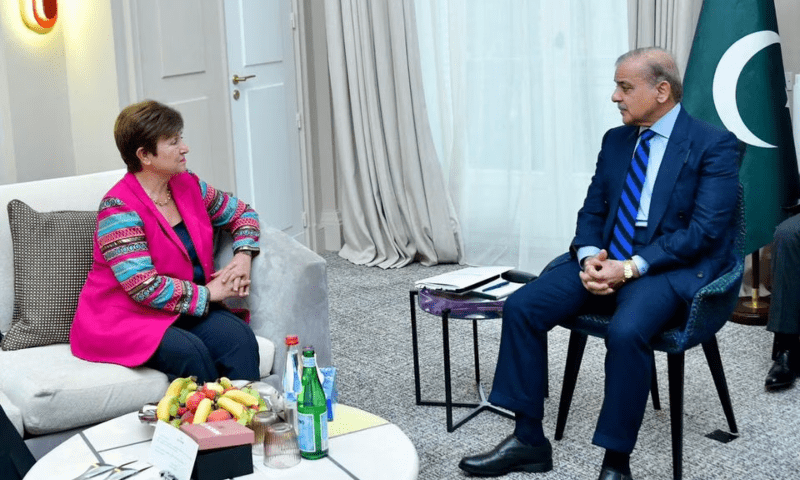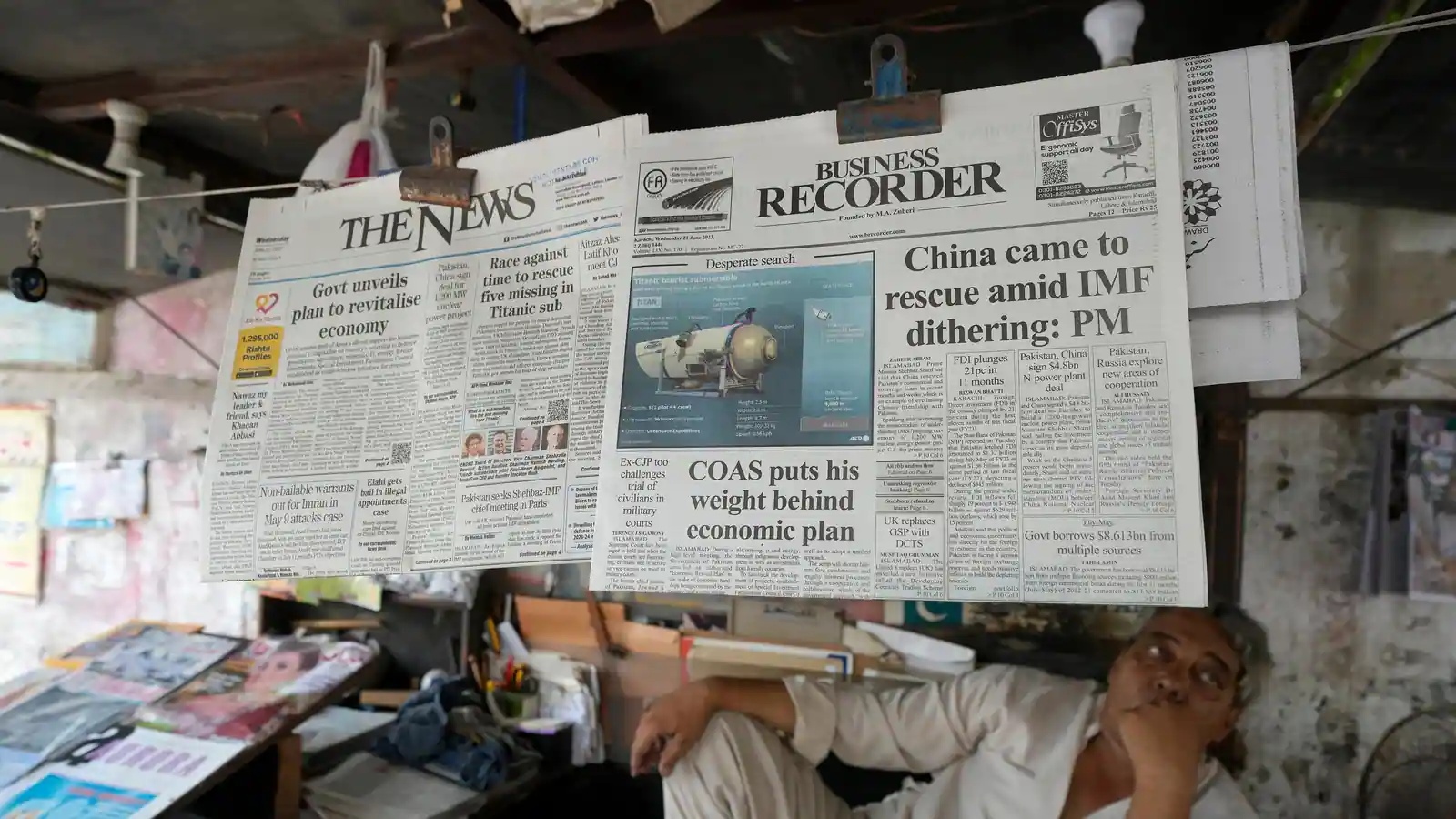(CTN News) – Pakistan has successfully obtained initial approval from the International Monetary Fund (IMF) for a $3 billion loan program, significantly reducing the risk of a sovereign default.
This development has not only boosted investor confidence but also had a positive impact on the nation’s dollar bonds, leading to a surge in their value.
Positive Impact on Pakistan’s Dollar Bonds and Economic Stability
The staff-level agreement, subject to the approval of the IMF Executive Board, is expected to be considered by mid-July, according to a statement issued by the Washington-based lender on June 29.
The nine-month arrangement is separate from the existing IMF-supported program, which expires on June 30 and aims to facilitate the country’s smooth transition to a newly elected administration later this year.
Following the announcement, Pakistan’s dollar bonds due in 2024 experienced a significant rally. The notes climbed by 9 cents to reach 71.6 cents on the dollar. It is worth noting that local markets were closed due to a holiday and are scheduled to reopen on Tuesday.
Pakistan has a history of seeking financial assistance from the IMF, with nearly two dozen bailouts since the 1950s. Recently, Pakistani authorities have intensified their efforts to meet the IMF’s demands.
These efforts include raising taxes, implementing spending cuts, and increasing the key interest rate to a record level.
The IMF loans are paramount in helping the South Asian nation manage its external debt payments, which amount to $23 billion for the fiscal year starting in July. This figure is more than six times its foreign exchange reserves.
Brendan McKenna, a strategist at Wells Fargo & Co. in New York, emphasized the significance of IMF support, stating that it eliminates the immediate risk of default and provides much-needed liquidity to support an aggressive reform agenda.
McKenna expressed optimism that Pakistan’s debt would rally in the short term, potentially offering long-term value if the government demonstrates a commitment to the IMF’s program targets.
Prime Minister Shehbaz Sharif acknowledged the importance of the IMF loan program in strengthening Pakistan’s foreign exchange reserves, achieving economic stability, and setting the country on a path of sustainable economic growth. He shared his optimism in a tweet, highlighting the positive impact of this arrangement on Pakistan’s economic outlook.
However, caution should be exercised, considering Pakistan’s past relationship with the IMF. In August, the government secured staff approval for a $1.1 billion loan, only to have it suspended due to Islamabad’s failure to meet certain conditions.
The IMF mission chief Nathan Porter emphasized the importance of executing the budget as planned and urged authorities to resist pressures for unbudgeted spending or tax exemptions in the coming period.
According to Porter, steadfast policy implementation, including fiscal discipline, a market-determined exchange rate, and further progress in energy sector reforms, will be crucial in overcoming Pakistan’s current challenges.
Pakistan’s Position as the Final South Asian Country to Secure IMF Funding
Pakistan is the last among three South Asian countries to secure IMF funding due to delays in implementing reforms and obtaining creditor agreements amidst a political crisis.
To meet the IMF’s key demands, Pakistan has already implemented measures such as increased taxes, higher energy prices, and allowing the depreciation of its currency. The Pakistani rupee has depreciated by over 20% this year, making it one of the worst-performing currencies globally.
Pakistan’s foreign exchange reserves have experienced a significant decline, falling by almost 60% over the past 12 months to reach $3.5 billion as of mid-June.
This decline has restricted the nation’s ability to fund imports, including raw materials, leading to the suspension of operations in many factories.
The approval of the $3 billion IMF loan program provides a much-needed lifeline for Pakistan’s economy. It alleviates the immediate risk of default and injects liquidity to support the government’s reform agenda.
This financial support will help strengthen Pakistan’s foreign exchange reserves, enabling the country to achieve economic stability and sustainable economic growth.
To ensure the successful implementation of the IMF program, it is crucial that the Pakistani government executes the budget as planned and resists pressures for unbudgeted spending or tax exemptions.
Meeting these conditions and demonstrating a commitment to fiscal discipline will be essential in building investor confidence and stabilizing the economy.
Furthermore, Pakistan needs to focus on key areas for reform, particularly in the energy sector. Progress in market-oriented reforms, including a market-determined exchange rate and further measures to address the energy sector’s challenges, is necessary to overcome Pakistan’s current economic difficulties.





